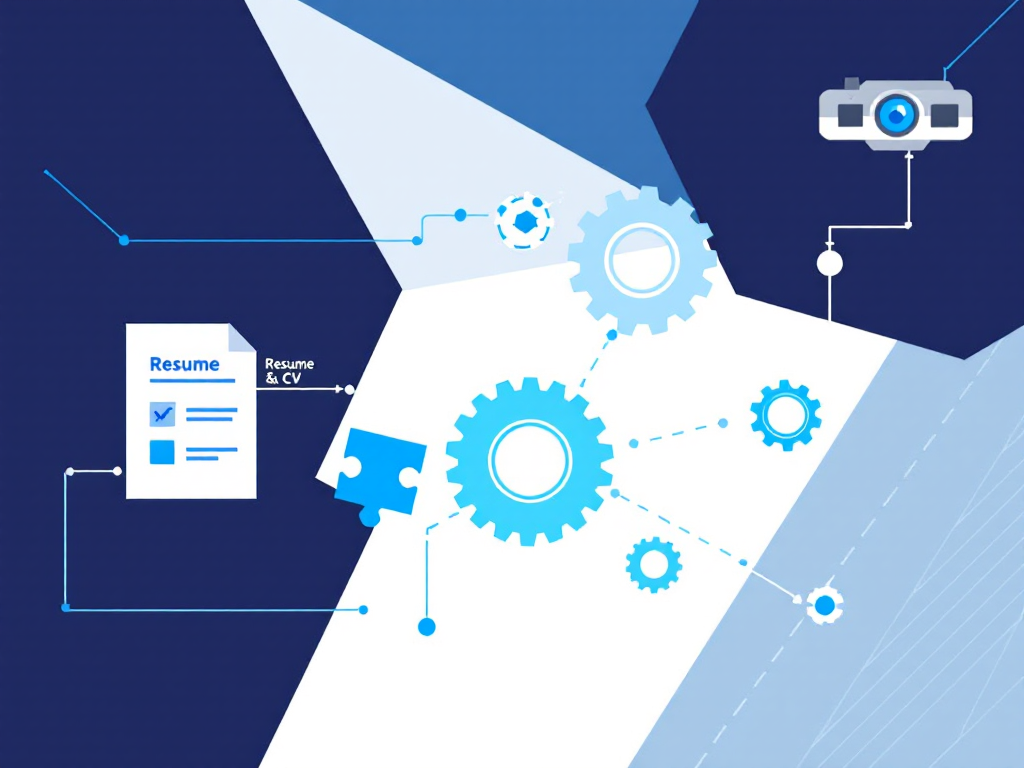
How to Secure a Job Offer: Beyond Resumes
Introduction: Beyond the Resume
Meet Tom, a marketing professional who’s been looking for new jobs for a while now in hopes of advancing his career. His résumé is polished, with a decade’s worth of experience and a string of successful campaigns. But here he is again, sitting at yet another interview, he knows he needs more than a well-crafted resume and a couple of offers/don’t offers. And even more, it’s about being something on top of the paper, especially by way of his interpersonal skills and adjustment on street scenarios.
This epiphany becomes a pivotal moment in Tom's career path, underscoring the significance of honing one's interview skills and crafting a compelling narrative about personal experiences. Building the bridge between a well-structured resume and landing a job offer is the ability to connect-link-sell yourself to the employer, making them realize why you are different from others.
Context from the World & My Own Experience
Whether it is interpersonal skills or any other skill, it is essential in today’s fast-paced working environment.
They sometimes surface in group projects, group meetings or simply during breaks in office chat. Imagine a hypothetical project where Tom’s team was working on a new product which had a fasttrack launch window. The pressure was real, and team harmonies were challenged.
Well this gift of communication, mediating conflicts and inspiring his team made all the difference in overcoming these challenges.
The experience showed him that technical skills matter, but so do soft skills: the ability to collaborate and contribute to a productive, enjoyable team atmosphere.
Looking back on experiences like these, Tom realized that the skills learned when overcoming challenges in the workplace have been more valuable, if not as much so, as the technical skills that populate his resume. These learnings enhanced his appreciation of team dynamics, while reiterating the importance of effective communication to achieve common goals.
Key Insights & Practical Takeaways
You have a lot of history to provide, however, you also need to shed light on how history yields your expertise and expertise. Some strategies Tom learned to promote himself during interviews were:
- Preparation is Crucial: Do a thorough research about the company and the role. Be aware of the give and take in terms of discussing the challenges the organization is facing and how you would help in solving them.
- Smart Rehearsing: Practice your answers well. Employers want candidates who are honest about their experiences and show a desire to learn and grow.
- Story-telling: That is, provide tangible examples of your craft. Share examples of problems you encountered, how you solved them, and the results. This not only keeps interviewers engaged but it also demonstrates your ability to problem-solve.
- Steer Clear of Clichés: Use plain language and don't over-promise. Rather than getting all meta, concentrate on clear cut prose and real-world examples that showcase your abilities.
Implementing these strategies can help candidates demonstrate their value to employers and make an impact beyond the resume.

Success or “Aha” Moment
One of Tom’s biggest breakthroughs came when he was preparing for a presentation for a high-profile client. The project was facing unforeseen challenges that were making the team feel less confident about its future success. Tom rose to the occasion, leveraging his soft skills to restore morale and redirect the team’s focus. He held brainstorming sessions, promoted open communication, and led by example.
The outcome was a well-received presentation that earned approval from the client as well as the newly formed team’s confidence. This situation was a classic example of how soft skills can make or break you in business and in your career. It was a win not only in terms of the project results, but also in how the team came together and how to build trust with the client.
Career & Interview Insights Using interview skills gained from your experience can help differentiate you from others interviewing for the same role. Here are tips, tricks, and examples to help you to best display your skills:
- Connect Experiences to Outcomes: Try linking your experiences to real project outcomes in your next interview. For instance, tell me about when your leadership enabled the success of a project.
- Situational Interview responses: Anticipate a series of behavioral questions using the STAR method (Situation, Task, Action, Result). This followed a structure will help clarify your problem-solving capabilities.
- Expert Tips: Tailor your responses to align with the company’s values and goals. The more you can relate your skills and experiences to what will be beneficial to the organization, the stronger your case for candidacy will be.
Presenting your experiences and skills well can lead hire, as it will gave a good impression during the interview process.
Conclusion & Inviting Reader Interaction
In short, landing a job offer requires more than a great resume. You have to learn the art of getting noticed and valued, using communication skills, by storytelling, and through examples of what's working for you in real life. Focusing on these aspects can help candidates in performing better in interviews and eventually cracking the competition in the job market.
We’d love to hear your own experiences or questions in the comments below. Ability — how you have used your skills to get job offer To learn more about career development, check out OfferGenie’s resources, created to help you explore your preferred career path!
Wondering how to use your skills for your career? Feel free to contact OfferGenie or leave a comment below!